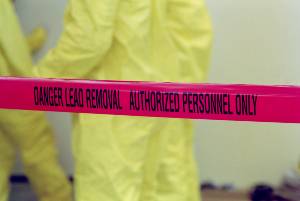Blog
Can Employers be Held Liable for Workers’ Exposure to Lead?
Posted on behalf of Peter T. Nicholl in Lead Paint Poisoning Published on October 8, 2021 and updated on January 21, 2025. An employer could be held liable if the victim’s attorney can prove the victim was exposed to lead due to the employer’s negligence. For example, your lawyer may be able to prove negligence by proving your employer violated federal laws designed to protect workers from lead exposure.
An employer could be held liable if the victim’s attorney can prove the victim was exposed to lead due to the employer’s negligence. For example, your lawyer may be able to prove negligence by proving your employer violated federal laws designed to protect workers from lead exposure.
Below, our experienced Maryland lead paint poisoning lawyers discuss employer liability for lead exposure and some of the ways we may be able to validate a claim against an employer. If you were exposed to lead and suffered an injury, you may have a case.
Call The Law Offices of Peter T. Nicholl today to discuss your potential legal options in a free legal consultation.
Employer Liability for Lead Exposure
In a personal injury case, the victim or his or her attorney must prove another party caused the victim’s injuries through negligence. This is a legal theory involving the breach of a duty of care owed to the victim. This breach must be directly linked to the victim’s injuries.
One way your attorney may be able to prove a breach of duty of care is by providing evidence of illegal conduct, such as a violation of federal law. For example, there are federal laws on steps employers are required to take to protect their workers from lead exposure. If an employer fails to take some of these steps, or gets some of the details wrong, that employer may face liability for injuries that result.
These regulations are complex and reading through and understanding them takes time. That is why victims should strongly consider hiring an attorney so he or she can manage this process on their behalf.
Employer Responsibilities Under OSHA
The Occupational Safety and Health Administration (OSHA) has numerous regulations for employers on protecting their workers from lead exposure. These are just a few of those regulations:
- Inspect work sites for lead, including testing the air for lead
- Provide protective clothing and equipment, such as respirators that have been federally approved
- Make sure spaces for taking breaks and changing clothes are free from lead contamination
- Post signs educating employees about the dangers of lead exposure
- Conduct regular blood tests of employees and remove workers from jobs if the lead level in their blood is 50 mcg/dL or more
- Implement engineering controls to help protect workers
- Train employees on avoiding lead exposure
- Maintain records on employee exposure to lead and medical monitoring of those workers
Your employer could potentially be held liable for using defective equipment to try to comply with these regulations or failing to properly maintain this equipment.
If you think your employer could have and should have done more to protect you from lead exposure, give our firm a call today to discuss possible legal options.
High-Risk Jobs for Lead Exposure
There are certain industries and occupations that put workers at higher risk for exposure to lead, such as:
- Shipbuilders
- Steel welders
- Lead manufacturing
- Lead mining
- Lead refining
- Lead smelting
- Plastic manufacturing
- Construction
- Glass manufacturing
- Paint manufacturing plant workers
- Lead soldering
- Battery manufacturing
Lead exposure typically happens in one of three ways:
- Breathing in lead dust or fumes – Fumes are created when lead is heated or soldered, while dust is created when lead is cut or when lead paint gets sanded down.
- Ingesting lead by eating or drinking contaminated food or drink – Lead dust may settle on food, clothes or other objects. Lead dust could also get into water. That is why it is so important to wash your hands if you work in a high-risk job or have another reason to believe you were recently exposed to lead.
- Absorbing lead dust through the skin – Research has shown it may be possible to absorb lead through the skin.
It may be possible to expose family members by bringing lead dust home on your clothes or in your hair. That is why it is important to follow lead mitigation procedures before leaving your workplace.
Learn More About Our Services. Call Today
Have questions about your potential case? Unsure how a lawyer can assist you?
Give us a call to learn more about the benefits of hiring a lawyer after suffering a lead poisoning injury. We do not charge upfront fees and do not get paid for representing you unless you get paid.
For more than 30 years we have been helping injury victims secure compensation.
There are no legal obligations or upfront fees. Call 410-907-3957.

